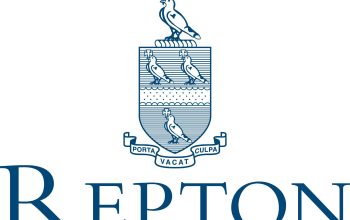To become a successful medical laboratory scientist, the first step is to acquire a solid education in the field. A bachelor degree in medical technology is a standard requirement for most medical laboratory positions. This program prepares students with the essential knowledge and provides them with the technical competency necessary for a professional career.
Upon completing a Bachelor’s degree, aspiring MLS professionals can also consider obtaining a master’s degree or a specialized certification to enhance their career opportunities. These additional qualifications demonstrate a commitment to the profession and provide a deeper understanding of specific areas within the medical laboratory domain.
Throughout your educational journey, ensure that you attend industry conferences, workshops, and seminars to stay up-to-date with the latest advancements in medical laboratory science. Networking with professionals and experts in the field can provide invaluable knowledge and open doors for future job opportunities.
Developing Essential Skills
Being a successful laboratory scientist requires more than just knowledge and a degree. It is essential to hone a specific set of skills that contribute to making informed decisions, interpreting test results accurately, and handling sensitive patient data. Critical thinking, attention to detail, and the ability to work under pressure are crucial skills for an MLS professional.
As technology advances, it is vital to stay informed about the latest tools and methodologies employed in the laboratory setting. This includes learning various laboratory information systems as well as how to use and maintain different equipment. Additionally, effective communication skills play a key role in being a competent medical laboratory scientist. You should continuously work on improving your communication skills to better collaborate with colleagues, patients, and other healthcare providers.
Seeking Professional Guidance

One of the best ways to navigate the path of becoming a medical laboratory scientist is to seek professional guidance. College counselor services can provide you with personalized advice, support, and access to resources tailored to your academic and professional goals. These services can help you identify the best educational programs, scholarship opportunities, and guide you on how to excel in your professional endeavors.
Furthermore, mentorship from experienced professionals in the field can offer valuable industry insight and guidance. By learning from their experiences, you can make more informed decisions about your career while gaining a practical understanding of the daily responsibilities and challenges faced by medical laboratory scientists.
Finally, consider joining professional organizations or societies for medical laboratory science. These organizations offer their members a range of benefits including educational resources, networking opportunities, and access to the latest industry news and innovations.
Balancing Work and Personal Life
Working in the medical laboratory field can be demanding and requires a high level of dedication. However, it is crucial to maintain a balance between your professional career and personal life. Building a healthy work-life balance can lead to a more fulfilling career and prevent burnout.
To achieve this balance, create a schedule that accommodates both your professional responsibilities and personal commitments. Understand the importance of taking breaks and engaging in activities outside of work. Participate in hobbies, spend time with family and friends, and practice self-care to ensure overall well-being.
Additionally, establish boundaries between your work and personal life. It is essential not to let one domain overpower the other. Communicate with your employer and colleagues about your needs and work together to achieve a harmonious balance between your work and personal life.
Altogether, becoming a successful medical laboratory scientist requires not only obtaining the right education but also developing essential skills, seeking professional guidance, and maintaining a healthy work-life balance. By following these tips, you will be well-prepared to excel in the rewarding and fulfilling field of medical laboratory science.




